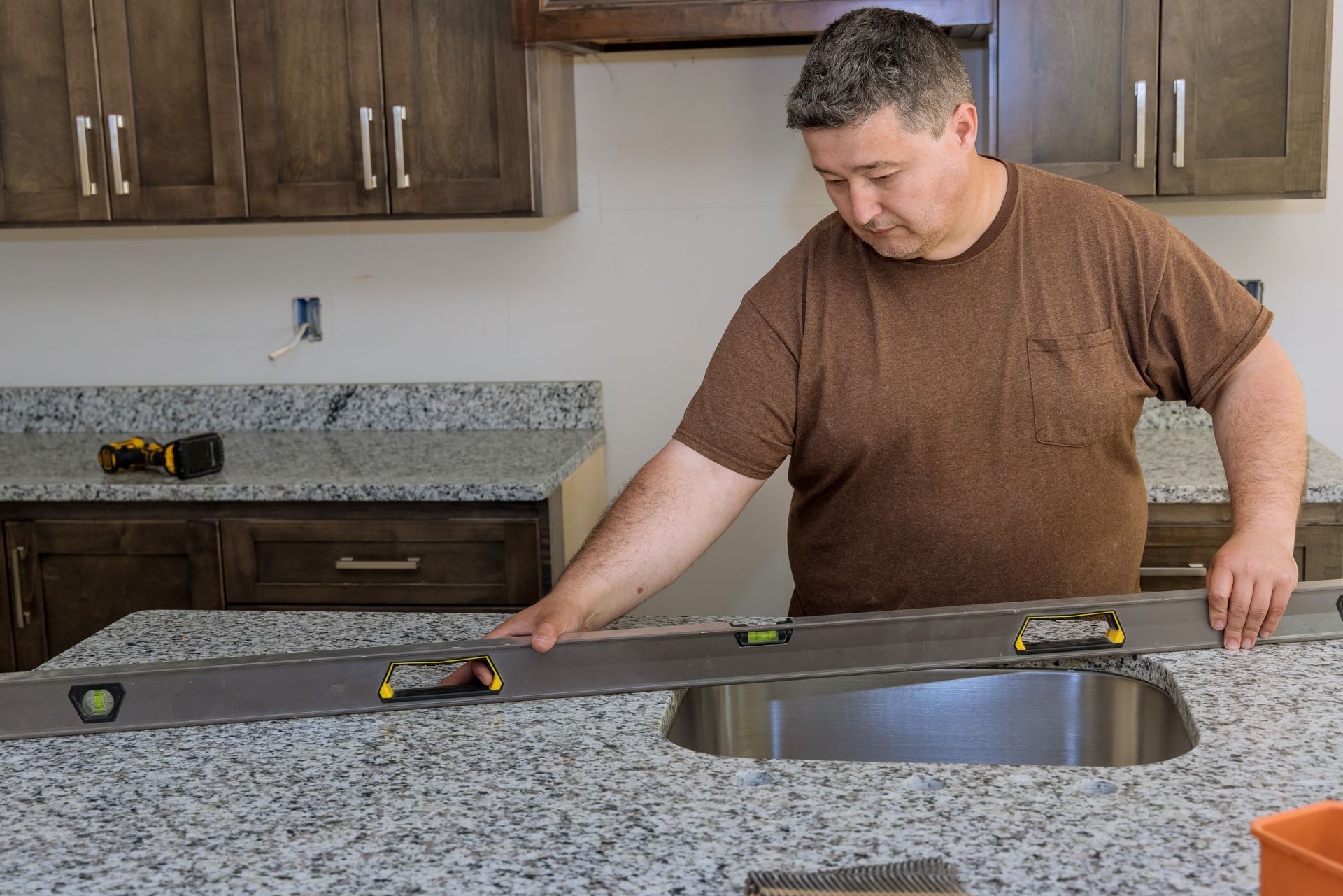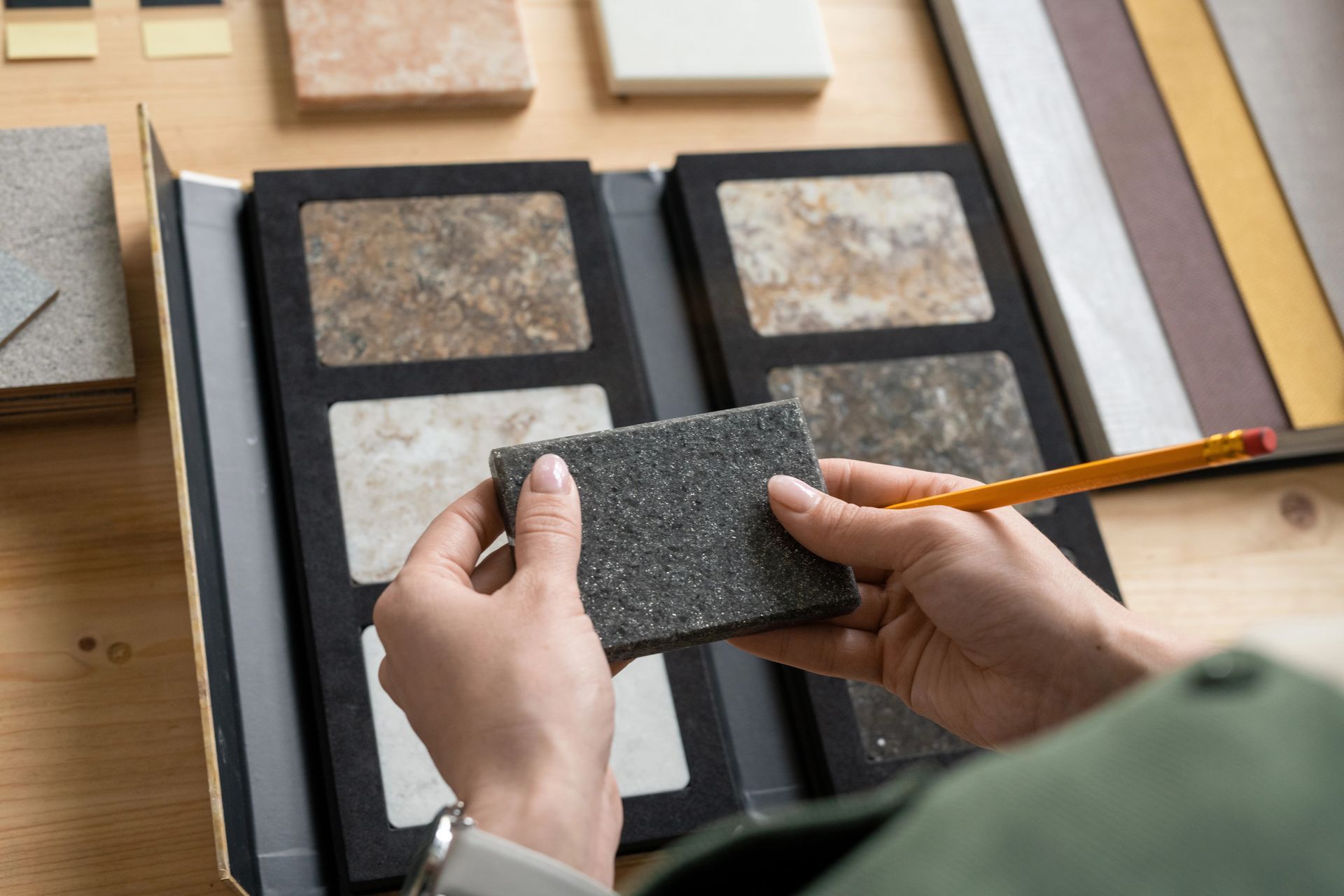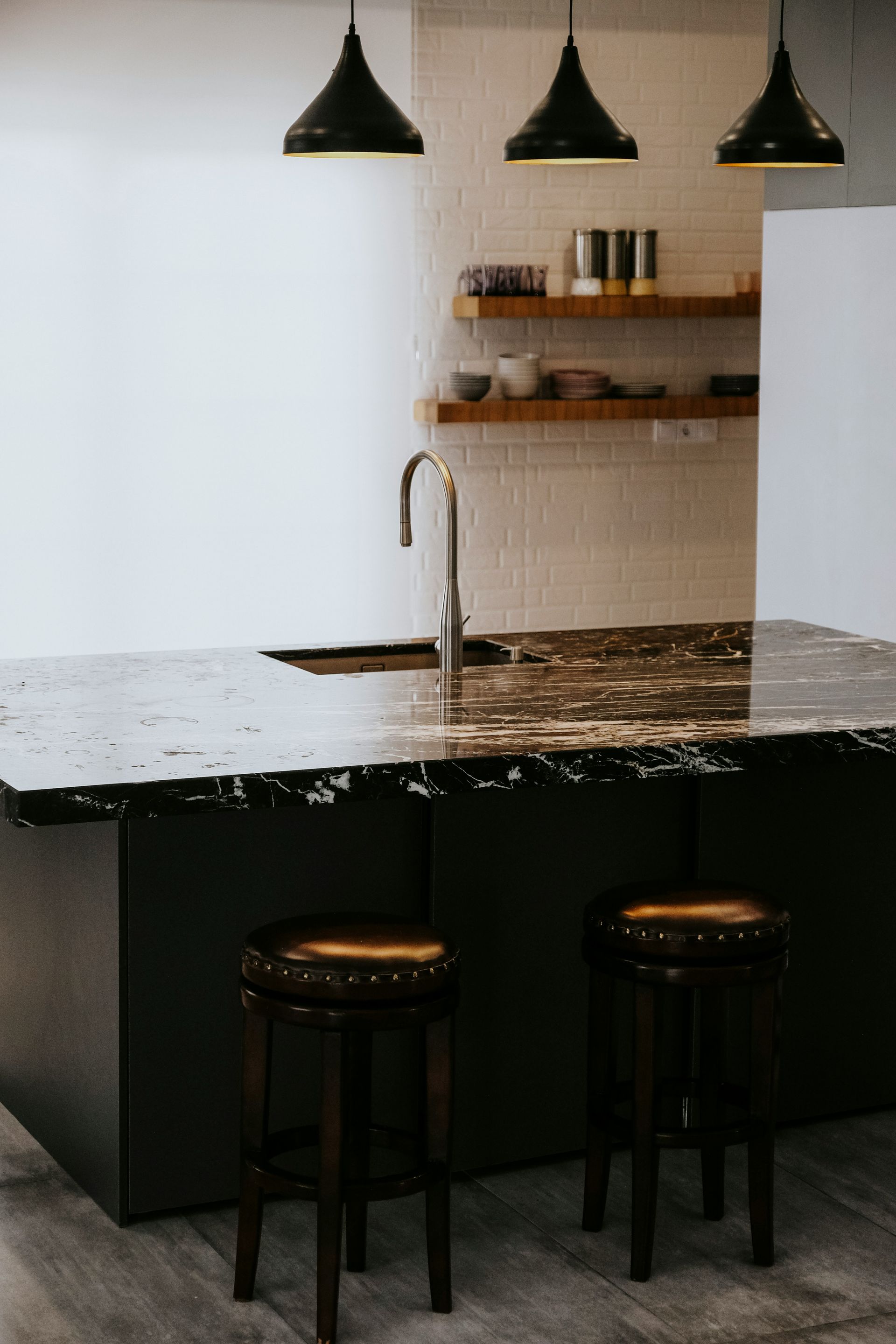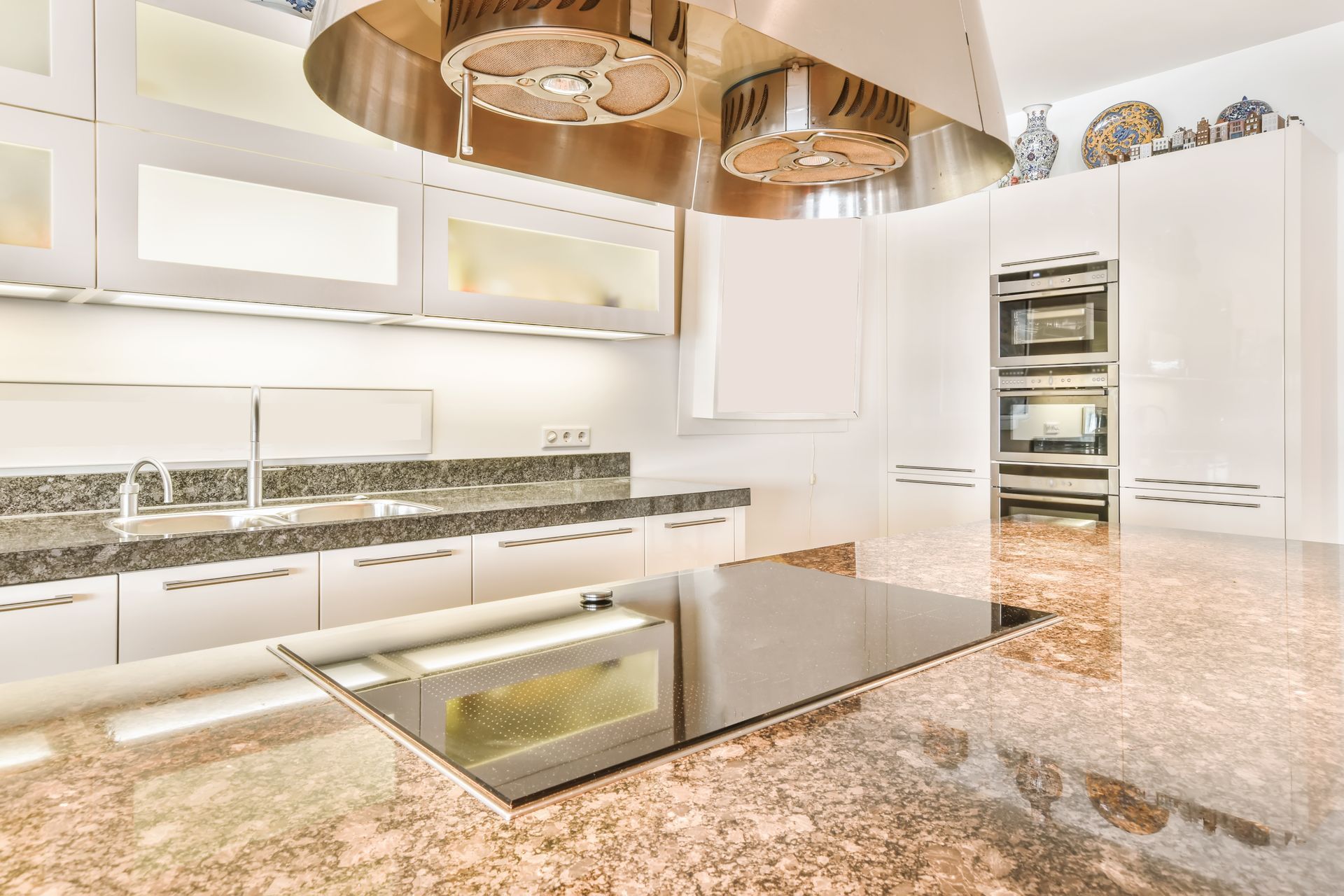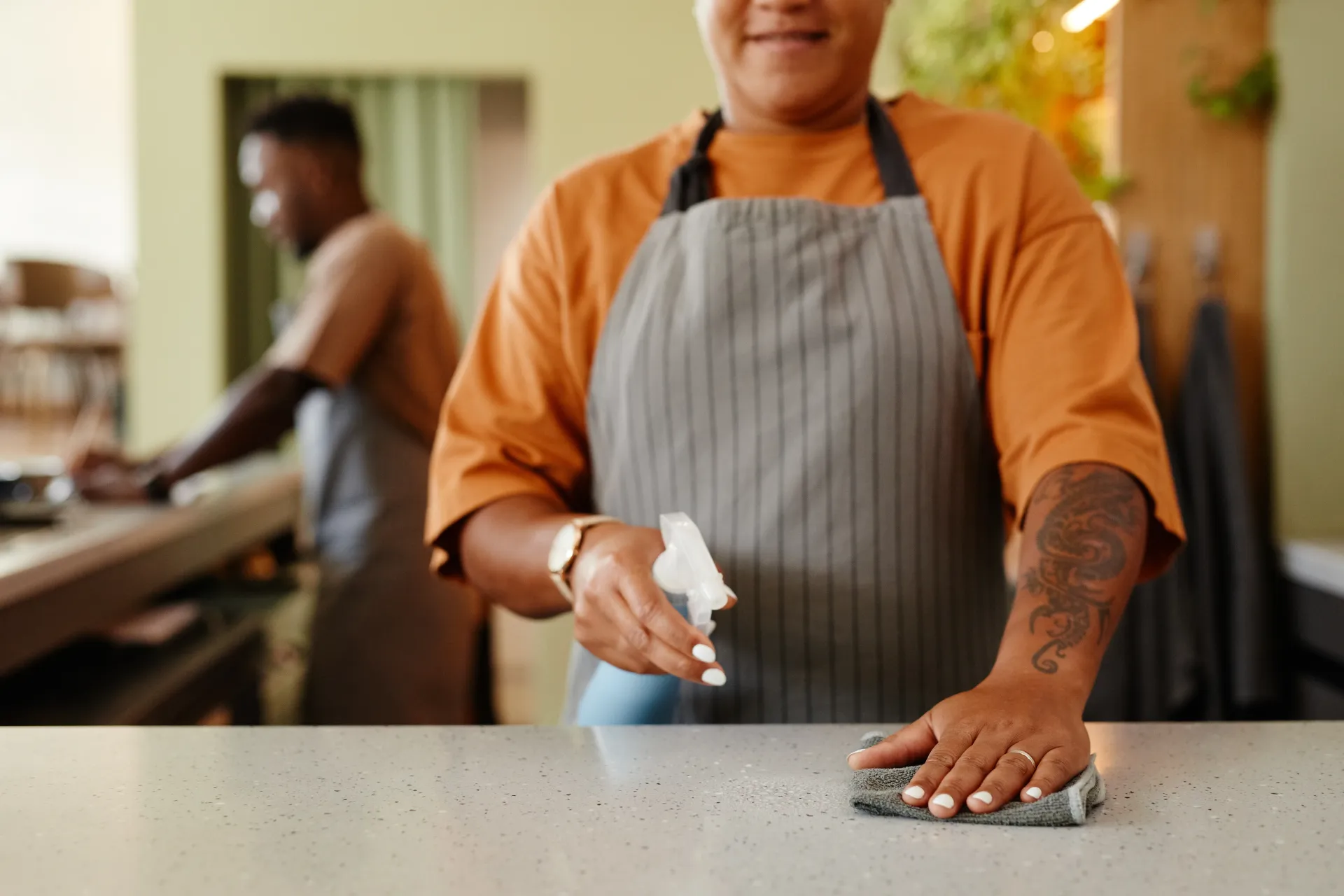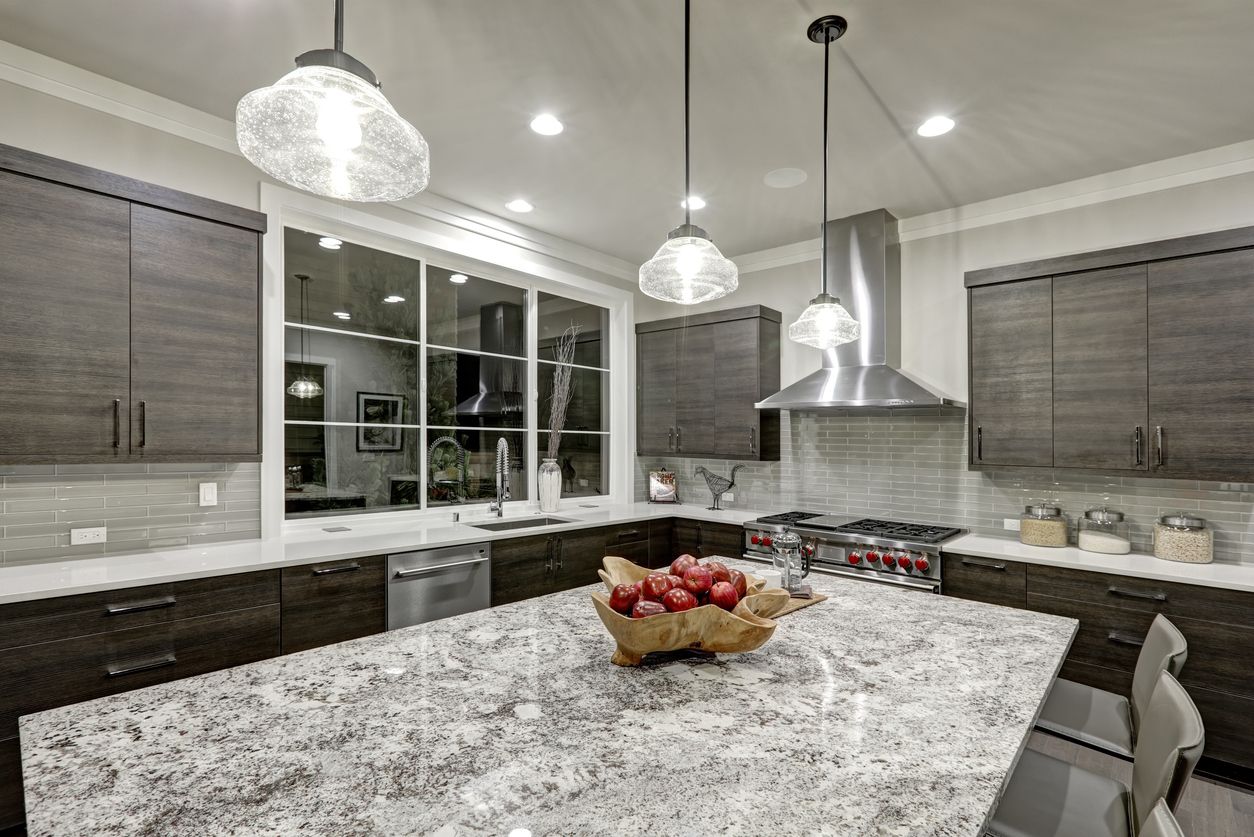What Can Damage Granite and Natural Stone Countertops?
Granite and other natural stone countertops are a prized feature in any home, celebrated for their unique beauty and remarkable durability. They serve as the centrepiece of kitchens and bathrooms, adding value and a touch of timeless elegance. While these surfaces are tough, they are not indestructible. Understanding what can cause damage is the first step to preserving their pristine condition for a lifetime.
Many homeowners are surprised to learn that everyday habits and common household products can
harm their beautiful stone surfaces. This guide will walk you through the primary causes of damage to granite and natural stone, from spills and acidic substances to improper cleaning and physical impacts. With insights from the experts at Busche Granite, you will learn practical tips to protect your investment and keep your countertops looking flawless.

The Threat of Spills and Stains
One of the most common risks to granite and natural stone is staining from spills. Because natural stone is porous, liquids can seep into the surface if not cleaned up promptly. This is especially true for unsealed or poorly sealed countertops. Once a liquid penetrates the stone, it can leave a stain that is difficult to remove.
Common Culprits for Stains:
- Oils: Cooking oils, grease, and even oily cosmetics can leave dark spots.
- Colored Beverages: Red wine, coffee, tea, and dark fruit juices are notorious for causing stains.
- Acidic Liquids: While also causing etching (more on that below), acidic spills can discolour stone.
The key to prevention is immediate action. Blot spills as soon as they happen with a soft cloth or paper towel rather than wiping, which can spread the liquid. For daily cleaning, a simple solution of mild dish soap and warm water is often sufficient.
The Damaging Effects of Acidic Substances
Beyond staining, certain substances can cause a chemical reaction with the minerals in natural stone, leading to etching. Etching is physical damage to the surface that appears as a dull, whitish mark where the polish has been worn away. Unlike a stain, it cannot be cleaned off.
Everyday Acidic Items to Avoid:
- Lemon juice and other citrus fruits
- Vinegar
- Soda
- Wine
- Certain harsh cleaning products
The best defence is to keep these substances away from your countertops. Always use coasters for
beverages and cutting boards when preparing food with acidic ingredients. If a spill does occur, clean it immediately to minimize contact time.
Improper Cleaning: Doing More Harm Than Good
Choosing the right cleaner is essential. Many general-purpose household cleaners contain harsh
chemicals, like bleach or ammonia, that can strip the sealant from your granite and dull its finish over
time. A compromised sealant leaves the stone vulnerable to staining and etching.
Similarly, abrasive scrubbers like steel wool or scouring powders can create micro-scratches on the
surface. While these may not be visible individually, they accumulate over time and diminish the stone's natural shine.
For safe and effective daily cleaning, stick to a pH-balanced cleaner specifically formulated for stone
surfaces. Alternatively, a soft microfiber cloth with warm, soapy water works well. This gentle approach preserves the integrity of both the sealant and the stone itself.
The Importance of Sealing Your Countertops
A quality sealant acts as a protective barrier, repelling liquids and preventing them from seeping into the stone's pores. Most granite countertops are sealed upon installation, but this protection wears off over time. Failing to reseal your countertops is one of the biggest mistakes you can make.
Experts at Busche Granite recommend sealing granite approximately once a year, although the
frequency can vary based on the type of stone and the amount of use it gets. You can perform a simple water test to check your seal: sprinkle a few drops of water on the surface. If the water beads up, the seal is still effective. If it soaks in and darkens the stone, it’s time to reseal.
Physical Damage: Scratches, Chips, and Cracks
Although granite is incredibly hard and scratch-resistant, it is not immune to physical damage. Heavy impacts and extreme temperature changes can cause significant harm.
- Heavy Impacts: Dropping a heavy pot or pan can chip or crack your countertop, especially along the edges or near sink cutouts. Be mindful when handling heavy cookware.
- Heat Shock: Granite is heat-resistant, but rapid temperature changes can cause thermal shock, potentially leading to cracks. Always use trivets or hot pads under pans coming directly from the stove or oven.
- Scratches: While it’s difficult to scratch granite, it’s not impossible. More importantly, cutting directly on your countertop will quickly dull your knives. Always use a cutting board to protect both your knives and your stone’s finish.
Trust the Professionals at Busche Granite
While daily care and preventative measures go a long way, professional maintenance is invaluable for the long-term health of your countertops. A stone care specialist can deep-clean surfaces, repair minor damage like chips or scratches, and provide an expert-grade seal that offers superior protection.
At Busche Granite, we understand the nuances of natural stone. Our experienced teams in Hamilton and Burlington have the knowledge and tools to keep your investment looking its best. We offer expert advice on care routines tailored to your specific type of stone and provide professional maintenance services to ensure its longevity.
Your granite countertops are a beautiful and durable addition to your home. By avoiding common
hazards and following these simple care tips, you can ensure they remain a source of pride for many
years.
If you have questions about caring for your stone countertops or need professional assistance, don't
hesitate to reach out. Contact Busche Granite today for expert advice and service you can trust.

